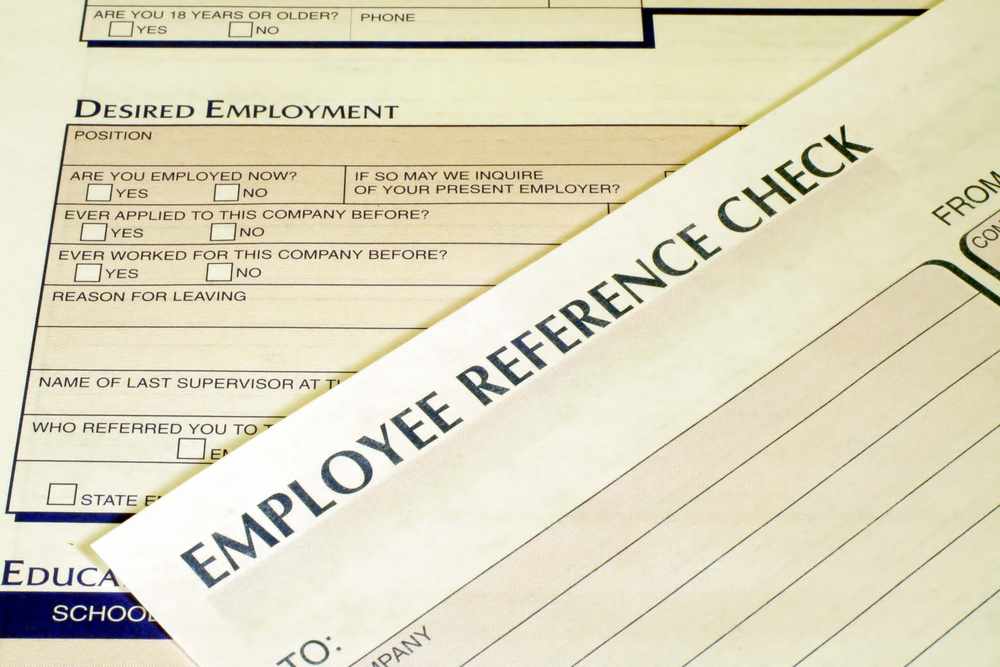Original article, published in the Tampa Bay Times
In their quest to land a job, many job seekers forget the importance of providing high quality professional references to their prospective employers.
Most job seekers stress over resume format, cover letters, potential interview questions and wardrobe. While these are all important aspects of your job hunt, many neglect to give the same attention to detail in preparing a list of quality references. A glowing reference could be the key to standing out among your competition.
How can you ensure your references will actually help you land the job? Which contacts will best convey that you’re the right fit? Here are some tips to leverage your reference list.
Select contacts that support and know you well.
You never want to use someone as a reference if you worked with them briefly or indirectly. Vague, bland accounts of your work history will just not work, and can literally count against you. Hiring managers will identify this quickly, it will make it difficult for them to obtain the information they are looking for, and may possibly raise even more questions. Don’t use relatives or friends as references. Ask a former supervisor, mentor, co-worker or professional colleague. A proper employment reference should be able to provide a personal account of your specific strengths, work ethic and job performance. The best references should know you well and support you as a professional. That doesn’t mean they have to know intimate details about your personal life, but they should know you well enough to be comfortable commentating on your abilities and sharing information about you.Keep them recent.
Avoid using outdated references. As a general guideline, references should be able to account for your work-related abilities within the last 2 years. Naming contacts you worked with 5-10 years ago is not ideal. In fact, hiring managers may see this as a red flag, and question why you’re not able to maintain current professional relationships.Reach out early and ask for their permission.
Even before you start the application process, begin developing your reference list. After you’ve identified 3-5 top names, reach out and always ask for their permission. This can prevent you from naming someone that doesn’t have the time or may not remember you. It can also identify an unwilling or potentially negative reference. Generally you won’t need to provide your list of references until you are actually at the job interview, but you don’t want to wait until the last minute to have everything in place. Your references should be set and ready before you go to the interview.Help them help you.
Properly approaching and briefing your references can increase your chances of being selected. You have the opportunity to be your own publicist. Remind them of your accomplishments, and try to make connections between what they know about you and what the opportunity requires. You want them to be prepared so they can provide a good endorsement and reinforce why you think you’re perfect for the role. You can also ask each different reference to highlight a different talent or strength. One could boast about your ability to establish client relationships, while another could convey your strengths in organizational or project management skills.Confirm their contact information.
Request their preferred contact information. Someone may have a new phone number or a better email address. It will not impress a hiring manager if they are unable to reach your references because the information is out of date. Perhaps leave a note on your reference list that shows the best time to contact (“Available between 11am – 6pm, Mon-Fri”) to help get them connected.Respect your references.
References can be a very important aspect to your job hunt, and they are truly doing you a very big favor. Don’t publicize their personal contact information by listing them on your resume or LinkedIn profile. Less than serious employer prospects can exhaust your references, especially if you’ve been on your job search for an extended period of time. Publishing their names and contact information not only demonstrates poor etiquette, it can also risk inappropriate use of their personal contact information. You don’t want them bothered by everyone.Thank them, always.
Regardless of the outcome, personally thank them for taking the time to help you. At minimum send a personal thank you note. If you know them well, perhaps consider including a small token of your appreciation like a Starbucks give card. If you do get the job, allow them to celebrate the victory with you. Take them to lunch, or buy them their favorite treat – like chocolates or a bottle of wine. Showing your appreciation will go a long way, and you may need to use them again in the future. Make sure they know how important they are to you, and they will return the favor.“The only source of knowledge is experience.” ― Albert Einstein
How can we help?
Career Counseling for Job Seekers
Stand out from the crowd!
An expertly written and keyword-optimized resume is the first step in landing a new career, next is knowing how to an ace an interview. Our career counselors can help you every step of the way!

